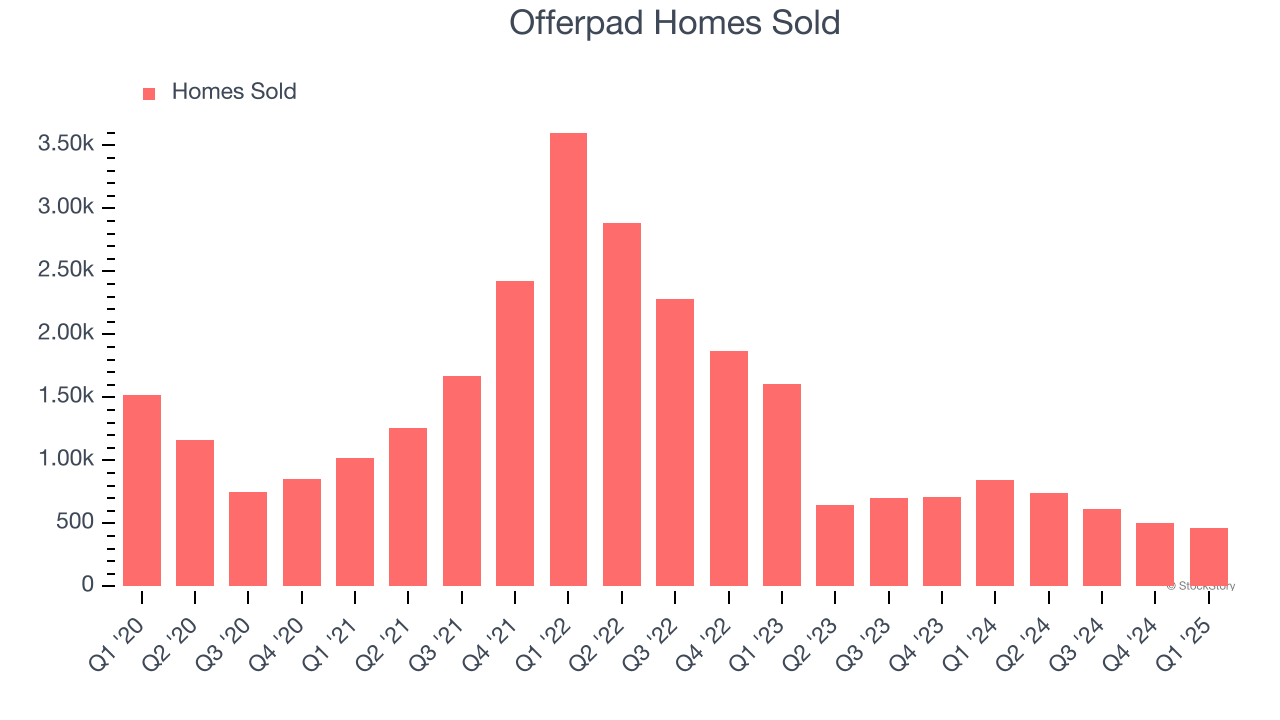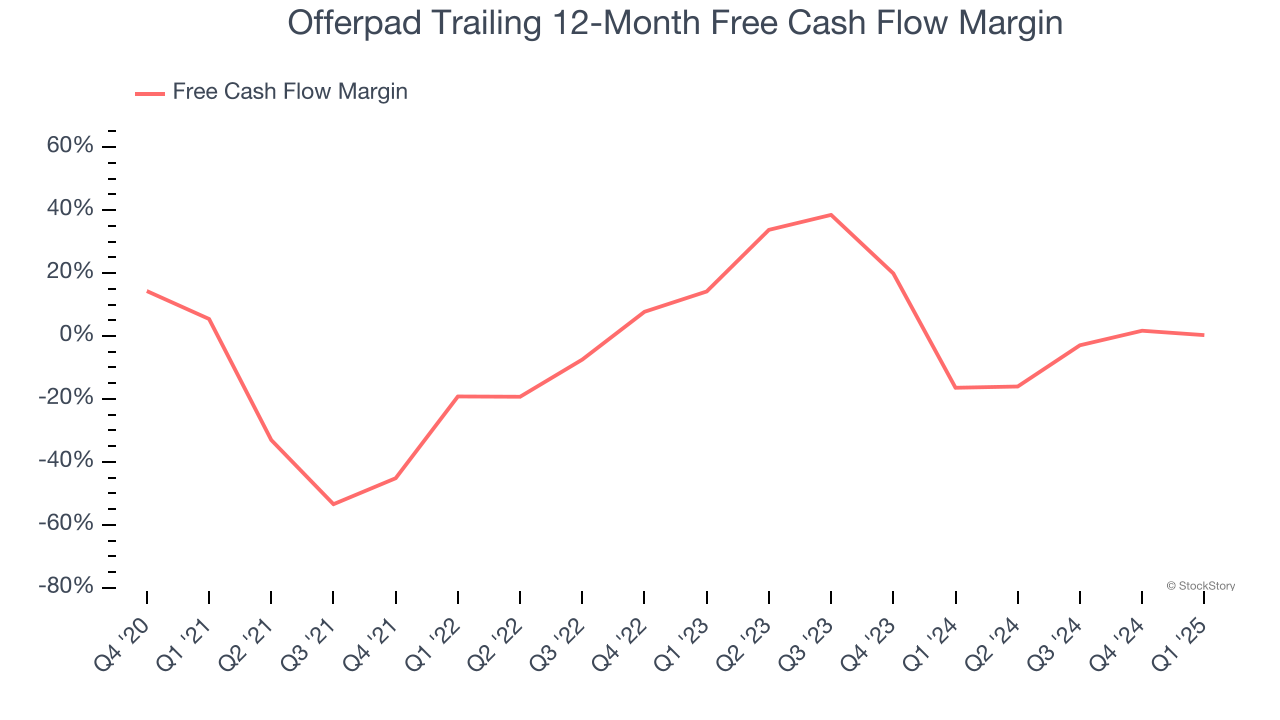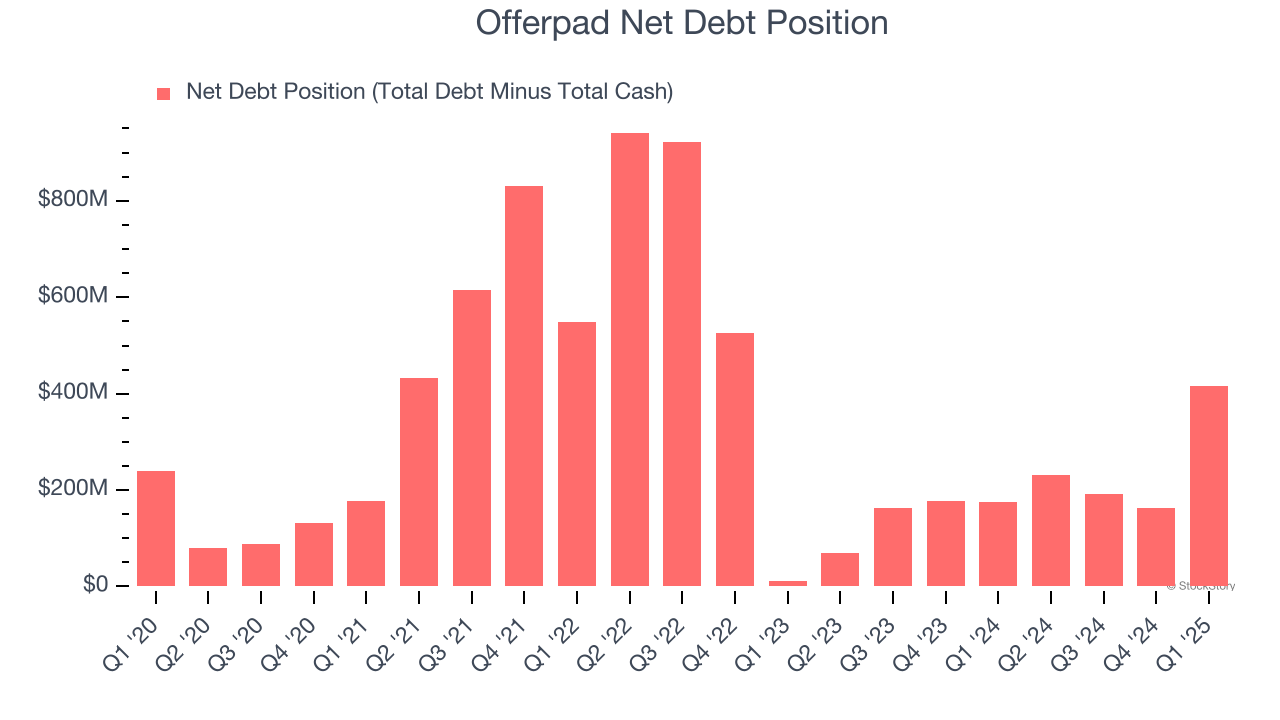
Offerpad’s stock price has taken a beating over the past six months, shedding 72.9% of its value and falling to $0.92 per share. This was partly driven by its softer quarterly results and may have investors wondering how to approach the situation.
Is now the time to buy Offerpad, or should you be careful about including it in your portfolio? Dive into our full research report to see our analyst team’s opinion, it’s free.
Why Do We Think Offerpad Will Underperform?
Even with the cheaper entry price, we're sitting this one out for now. Here are three reasons why OPAD doesn't excite us and a stock we'd rather own.
1. Decline in Homes Sold Points to Weak Demand
Revenue growth can be broken down into changes in price and volume (for companies like Offerpad, our preferred volume metric is homes sold). While both are important, the latter is the most critical to analyze because prices have a ceiling.
Offerpad’s homes sold came in at 460 in the latest quarter, and over the last two years, averaged 41.2% year-on-year declines. This performance was underwhelming and implies there may be increasing competition or market saturation. It also suggests Offerpad might have to lower prices or invest in product improvements to grow, factors that can hinder near-term profitability. 
2. Cash Burn Ignites Concerns
If you’ve followed StockStory for a while, you know we emphasize free cash flow. Why, you ask? We believe that in the end, cash is king, and you can’t use accounting profits to pay the bills.
Over the last two years, Offerpad’s demanding reinvestments to stay relevant have drained its resources, putting it in a pinch and limiting its ability to return capital to investors. Its free cash flow margin averaged negative 9%, meaning it lit $9.00 of cash on fire for every $100 in revenue.

3. Restricted Access to Capital Increases Risk
As long-term investors, the risk we care about most is the permanent loss of capital, which can happen when a company goes bankrupt or raises money from a disadvantaged position. This is separate from short-term stock price volatility, something we are much less bothered by.
Offerpad posted negative $29.92 million of EBITDA over the last 12 months, and its $451.2 million of debt exceeds the $35.68 million of cash on its balance sheet. This is a deal breaker for us because indebted loss-making companies spell trouble.

We implore our readers to tread carefully because credit agencies could downgrade Offerpad if its unprofitable ways continue, making incremental borrowing more expensive and restricting growth prospects. The company could also be backed into a corner if the market turns unexpectedly. We hope Offerpad can improve its profitability and remain cautious until then.
Final Judgment
We cheer for all companies serving everyday consumers, but in the case of Offerpad, we’ll be cheering from the sidelines. After the recent drawdown, the stock trades at $0.92 per share (or a forward price-to-sales ratio of 0×). The market typically values companies like Offerpad based on their anticipated profits for the next 12 months, but it expects the business to lose money. We also think the upside isn’t great compared to the potential downside here - there are more exciting stocks to buy. Let us point you toward a top digital advertising platform riding the creator economy.
Stocks We Would Buy Instead of Offerpad
Market indices reached historic highs following Donald Trump’s presidential victory in November 2024, but the outlook for 2025 is clouded by new trade policies that could impact business confidence and growth.
While this has caused many investors to adopt a "fearful" wait-and-see approach, we’re leaning into our best ideas that can grow regardless of the political or macroeconomic climate. Take advantage of Mr. Market by checking out our Top 6 Stocks for this week. This is a curated list of our High Quality stocks that have generated a market-beating return of 183% over the last five years (as of March 31st 2025).
Stocks that made our list in 2020 include now familiar names such as Nvidia (+1,545% between March 2020 and March 2025) as well as under-the-radar businesses like the once-micro-cap company Kadant (+351% five-year return). Find your next big winner with StockStory today.






